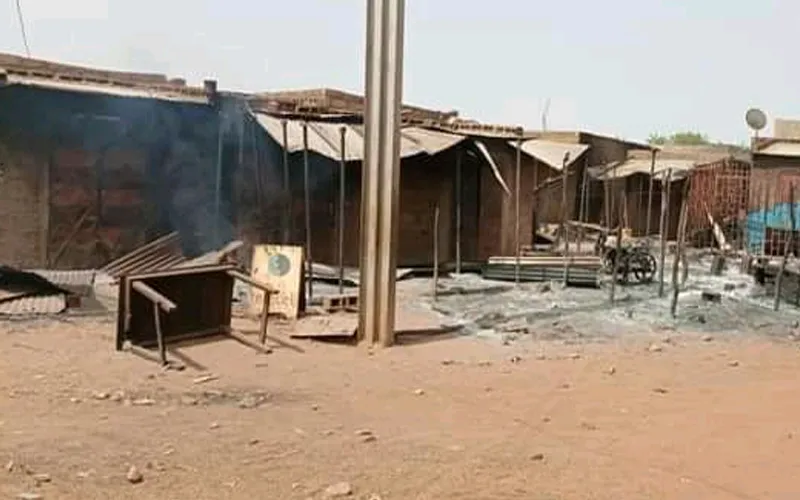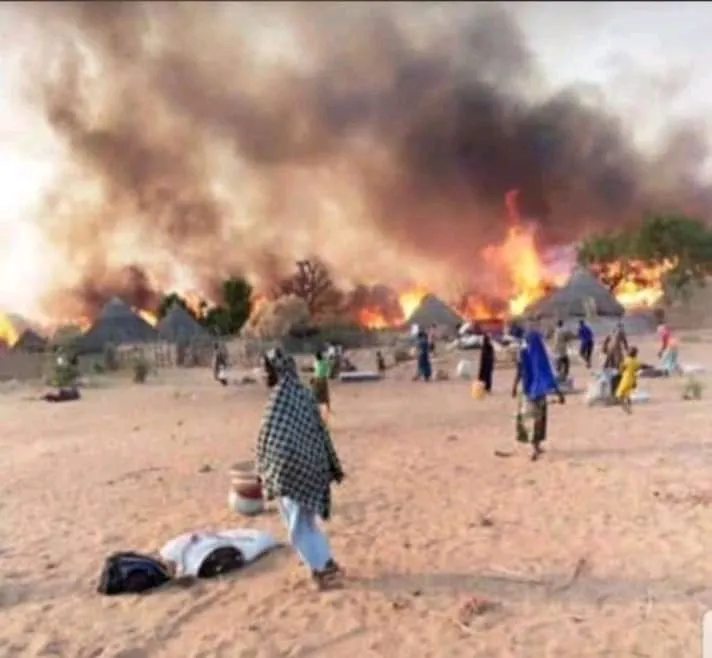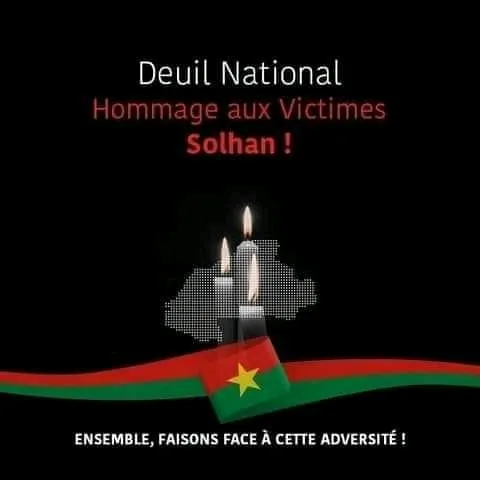“We must remain united against the forces of evil,” the President says in his June 5 statement.
Described by various media outlets as the worst since 2015, the attack comes at a time when Burkina Faso together with the other eight countries encompassed in the Sahel region, have endured a resurgence of violence from extremists, “much of it carried out by jihadists linked to Al Qaeda and the Islamic State,” the New York Times has reported.
Known to have been one of West Africa’s most stable countries, Burkina Faso seems to have “been trapped in spiraling violence since jihadist groups claimed their first attacks, in 2015. Since then, the country has faced hundreds of attacks, some carried out by jihadist groups and others by local rebels,” the New York Times further indicates in the Saturday, June 5 report.
Speaking about the June 4 night massacre, the Director of Communication of Burkina Faso’s Fada N’Gourma Diocese, Fr. Etienne Tandamba, told ACI Africa, “This tragic attack occurred at an area that is rich in gold with so many gold mines.”
“The reality is that the attackers killed over 100 people. And the count is not finished because there were a lot of people who were wounded,” Fr. Tandamba added.
(Story continues below)

Making reference to the high levels of insecurity in his country, the Burkinabe Cleric further said, “It is really a disturbing situation that calls for immediate action to end violence in the Sahel and bring back peace in this region.”
“Those who are providing arms and funding violence in the Sahel must stop their actions. Our people have suffered enough,” Fr. Tandamba told ACI Africa.
He continued, “African leaders should take concrete steps to resolve insecurity on the continent. Yesterday, it was Nigeria, the Democratic Republic of Congo and today Burkina Faso.”
“Who is the next victim? Do we sit quiet and watch our people continue to perish?” the Catholic Priest posed.
“If our leaders think this does not concern them then they are wrong,” Fr. Tandamba went on to say, adding, “It is time to come together and end this violence”
According to him, the extremists behind the attacks and violence “are planning to conquer the whole of Africa. So, we just have to think about it and the rest of the continent just has to think about it, and if people are feeding on that, on wars, troubles, terrorism, if people here in Africa are benefiting from that, then it is really dirty money and they should stop.”
“Last month, in my home village, gunmen attacked the St. Paul Chapel in Sandikpenga, but fortunately, no one died. They came after Sunday Mass. They did not know that the Sunday Mass was already over,” Fr. Tandamba recalled the events of Pentecost Sunday, May 23.
The people escaped the attack, he explained, “because the Christians in the village were on the alert about terrorists who forbid any other religion in the place. So, they hold their Eucharistic celebrations early enough.”
“After Mass that day, over 100 armed with motorbikes encircled the Church and they saw there was nobody inside. So, they burned everything in the church. Even the roof was completely destroyed,” Fr. Tandamba recounted the events of May 23.
He added, “The Church was closed down and the faithful advised to pray at home until further notice.”
The political crises in Burkina Faso have offered a fertile ground for the proliferation of extremist groups such as the Islamic State in the Greater Sahara and the al-Qaeda affiliate Jama’at Nasr al-Islam wal Muslimin.

In February, Catholics Bishops in Burkina Faso and Niger raised concerns about the increasing number of IDPs fleeing insecurity in the West African nation and called for peaceful coexistence between refugees and their host communities.
“We are concerned about the still large number of IDPs whose collaboration with their hosts is not always smooth,” CEBN members said in their collective statement following their February 9-14 Plenary Assembly.
To ensure peaceful coexistence between IDPs and their host communities, they recommended “a general dialogue” as well as an awareness campaign involving different leaders about peaceful co-existence.
Last month, the Catholic Church called on the people of God in the two neighboring West African nations to commit themselves to safeguarding human life.
“The worrying context in which our Church Family of God lives in Burkina Faso and Niger obliges us, your pastors, to invite you to discernment and vigilance in order to remain faithful to the demands of our faith in the God of life revealed in Christ our Savior,” the Catholic Bishops in Burkina Faso said in their collective message issued Pentecost Sunday, May 23.
Jude Atemanke is a Cameroonian journalist with a passion for Catholic Church communication. He holds a Bachelor’s Degree in Journalism and Mass Communication from the University of Buea in Cameroon. Currently, Jude serves as a journalist for ACI Africa.












